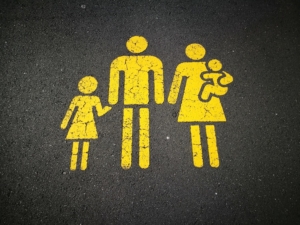How Family Counseling Can Change Your Family Dynamics
Families today face a wide range of difficulties and challenges that impact family dynamics. Families may deal with the effects of divorces, separations, deployments, moves, or identity crises. Families may also deal with a financial crisis, death of a loved one, medical issues, disabilities, or behavioral ups and downs. Newport Beach Christian Counseling offers compassionate support to help families navigate these challenges and strengthen their bonds.
 Families may need to address overarching issues of grief, anger, stress, or poor communication skills. It is definitive that all families will face obstacles of various kinds; however, it is important to note that your family does not have to deal with these roadblocks without the support and guidance of a counselor who can aid you in your family’s journey.
Families may need to address overarching issues of grief, anger, stress, or poor communication skills. It is definitive that all families will face obstacles of various kinds; however, it is important to note that your family does not have to deal with these roadblocks without the support and guidance of a counselor who can aid you in your family’s journey.
If one of your children is struggling with explosive anger outbursts, family therapy can help the child specifically as well as help the family determine how to best aid the child during their outbursts. The therapist will work to get to the root of the issue and determine the best way to help the child deal with and process their emotions.
If one of your family members is battling severe anxiety, family counseling can help the person struggling with anxiety as well as educating the entire family on how to help identify and deal with anxious behaviors.
If your family dynamics are impacted by the effects of stress because of finances or dealing with the loss of a loved one, family therapy can help you learn effective coping strategies to work on the betterment of your family’s emotional health.
Friday nights should be more about making memories together than avoiding one another because of underlying issues or avoiding conversation because you are unsure of what to say.
How Family Counseling Can Change Your Family Dynamics
Family counseling may be the pathway to establishing healthy communication.
Kevin Thompson said, “Communication thrives in healthy families. Unhealthy families have many topics that are off-limits.” For the betterment of the emotional and spiritual health of every family member, it is important to lay a strong foundation for communication skills. Every family member needs to know that their family conversations are a safe place.
 They need a safety net, a place of trust, a place to ease anxiety and make their feelings known. Children need a place to ask questions because the world will fill their minds with many thoughts and feelings that they are unsure how to process. Adults need communication with their spouse where they can make their feelings of depression or anxiety known without feeling like a failure.
They need a safety net, a place of trust, a place to ease anxiety and make their feelings known. Children need a place to ask questions because the world will fill their minds with many thoughts and feelings that they are unsure how to process. Adults need communication with their spouse where they can make their feelings of depression or anxiety known without feeling like a failure.
Family therapy can address family dynamics and ways to improve communication without judgment. Every individual, marriage, and family can improve in this area; it is not something you need to feel like a failure in if your communication is suffering or at a halt. Does everyone feel heard? Does everyone understand how to communicate without immediate judgment? Is everyone given the opportunity to voice their opinion or ask a question?
Family therapists can also serve as a mediator if the issues are more resentment-driven or someone is simply having a difficult time knowing how to voice their feelings.
Family counseling may be the fresh start your family is desperately longing for.
Perhaps your marriage is on the rocks or you feel like you are not getting through to your teenager. Maybe your teenager is inwardly struggling to find themselves or is unsure of what their future should look like. Perhaps their college decisions or sports scholarships are weighing heavy on their shoulders.
Family counseling is a great opportunity to discuss important topics or past issues in a safe, judgmental free place. Sometimes people do not realize how quickly they begin talking over someone else or a child is unsure how to ask a parent for help because of the fear of disappointing them
Sometimes it is more about children aiming to make their parents proud and feeling uncertain of how to voice their struggles. It may be the peer pressures that weigh like a ton of bricks on their adolescent shoulders.
Family therapy can help your family determine how to walk alongside one another in the struggles of life when you feel like you are currently at very different phases of life.
Family counseling can deal with a variety of issues.
 If one person in the family is struggling, it impacts family dynamics and likely means that the entire family is functioning differently. Most of the time, we do not struggle during the initial spiral of emotions and crisis, but afterward when the initial wave of support has come and gone.
If one person in the family is struggling, it impacts family dynamics and likely means that the entire family is functioning differently. Most of the time, we do not struggle during the initial spiral of emotions and crisis, but afterward when the initial wave of support has come and gone.
A child struggling with peer pressure needs continued support. Someone battling anxiety and depression needs continued support. Someone battling struggles from their past, the loss of a loved one, or fear of the future needs more support than what one day can offer.
Family counseling can help family members at large address their struggles and involve the entire family in establishing a plan of continued support for the future. Jen Williamson said, “There is no right speed at which to process one’s healing. There is no one path that serves everyone all of the time. Not every answer is everyone’s answer.”
Every person processes, deals with, and copes differently. Family therapy can aid your family in establishing emotional first aid and help determine how your family can best function through phases of grief, anxiety, anger, poor communication, and withdrawal.
Family counseling can help children establish healthy coping skills for their future.
Not only is family counseling effective and helpful for the entire family at large, but it can also help children learn and establish healthy coping skills for today and in the days and years to come. Helping children establish healthy coping skills is first done by helping them realize it is healthy to be vulnerable and express their feelings and emotions.
It is not a weakness to ask for help. Children need to know that their home is a safe place – one where they can cry, laugh, sing, dance, ask for help, and dream gargantuan dreams.
One thing children in today’s society are longing for is a voice. They long for their voices to make waves and to make a difference. It is crucial to their development to help them understand this voice and the impact it can have. Our goal is for them to be world-changers who know that they can make a difference by doing the right thing.
 Today, you can begin your family’s journey to health by:
Today, you can begin your family’s journey to health by:
- Scheduling a family therapy session. Today is your day! It can be a place of reset, rest, and resolutions. Your heart may need to hear “you are not alone.”
- Ensure that your family is pursuing open and honest conversation. Start by sitting down as a family and just having an open conversation. Ask everyone how they are really doing. Do not accept “I am okay” as an answer.
Dig deeper. Ask your teen how school is going. What are their favorite/least favorite classes and why? Do they still enjoy the sport they work so hard at? Ask dad how work is going. The first step is to approach conversations out of love and compassion rather than judgment and feelings of failure.
The key to open communication is to check your tone and your heart. Are you empathic or harsh? Are you truly asking someone how their day was, or are you going through the motions and not really listening?
- Realize every family faces their fair share of setbacks and crises. Do not feel like your family is wrong or failing because of a personal or overall family setback or crisis. You are not alone in facing personal issues. You are not alone in dealing with financial crises, poor communication, staleness in marriage, or having a trying time conversating with teenagers.
- Get involved at church and have a strong support system. An often-overlooked support system is right under our noses in the churches we attend on Sunday mornings. Ann Landers said it so well, “Church is not a museum for saints, but rather a hospital for sinners.”
It is so easy to feel like we must put on a façade at church. We feel we cannot ask for help or admit areas in our lives that are not picture-perfect. We can truly begin to experience a breakthrough when we put on fewer facades and more true faces.
1 Thessalonians 5:11 reminds us, “Therefore encourage one another and build each other up.” The church should be that place where we can come together like a village to help one another through the periods of darkness and ride along together during the periods of bountiful and immeasurable blessings. That is what family is really about.
Christian Counseling to Improve Family Relationships
If you’re looking to improve the family dynamics in your home, feel free to contact me or one of the other counselors at Newport Beach Christian Counseling . We would be happy to meet with you and your family to strengthen the bonds in your home.
“Family Watching the Sunset”, Courtesy of Jude Beck, Unsplash.com, CC0 License; “Family Crossing”, Courtesy of Sandy Millar, Unsplash.com, CC0 License; “On the Dunes”, Courtesy of Juan Cruz Mountford, Unsplash.com, CC0 License; “Family at the Beach”, Courtesy of Patricia Prudente, Unsplash.com, CC0 License

 Resilience after a rejection is not a trait only some people are blessed with. Dealing with rejection is a behavior that you can learn. It is how you identify and analyze your thoughts and emotions after rejection. It is learning how to use that hurt to mold and create your purpose by shifting your perspective.
Resilience after a rejection is not a trait only some people are blessed with. Dealing with rejection is a behavior that you can learn. It is how you identify and analyze your thoughts and emotions after rejection. It is learning how to use that hurt to mold and create your purpose by shifting your perspective. speak or acknowledge your presence. They may feel overwhelmed at work and take a quick break to scroll social media and inadvertently skip “liking” your post. Or, perhaps they are trying to manage all the small details for a social gathering and forget to personally invite you.
speak or acknowledge your presence. They may feel overwhelmed at work and take a quick break to scroll social media and inadvertently skip “liking” your post. Or, perhaps they are trying to manage all the small details for a social gathering and forget to personally invite you. Keeping the pain from rejection bottled up inside however is unhealthy and can lead to other long-term problems. You can feel the hurt, just don’t get lost in it. You don’t want the emotions to override your controlled behavior. Under the initial sadness, anger, or resentment of rejection is the hurt that needs to be addressed.
Keeping the pain from rejection bottled up inside however is unhealthy and can lead to other long-term problems. You can feel the hurt, just don’t get lost in it. You don’t want the emotions to override your controlled behavior. Under the initial sadness, anger, or resentment of rejection is the hurt that needs to be addressed. Allowing a situation to take the forefront in your mind can also exacerbate the pain and emotions toward the person or people involved. Anger, bitterness, and resentment can grow exponentially. The problem with allowing these emotions to grow is that they end up hurting you.
Allowing a situation to take the forefront in your mind can also exacerbate the pain and emotions toward the person or people involved. Anger, bitterness, and resentment can grow exponentially. The problem with allowing these emotions to grow is that they end up hurting you.
 Fear can be attached to reasons for withdrawal. Many people who withdraw live in dread of getting hurt so badly again. Though the real threat of danger may have passed, the trauma from the original incident runs deep. The fear of getting hurt again can drive the urge to withdraw.
Fear can be attached to reasons for withdrawal. Many people who withdraw live in dread of getting hurt so badly again. Though the real threat of danger may have passed, the trauma from the original incident runs deep. The fear of getting hurt again can drive the urge to withdraw. Emotional withdrawal symptoms can last for a few weeks after a trigger incident. If not handled right away, these symptoms can persist for months or even years. You need help to deal with these symptoms, so they don’t exact a heavy toll on your physical and mental well-being.
Emotional withdrawal symptoms can last for a few weeks after a trigger incident. If not handled right away, these symptoms can persist for months or even years. You need help to deal with these symptoms, so they don’t exact a heavy toll on your physical and mental well-being. The boy who was bullied gains some boundary-setting skills with his counselor. He learns to view his classmates as not “all bad” any longer. By taking a few calculated risks, practiced with his counselor, he connects with one child in the class and begins building a friendship.
The boy who was bullied gains some boundary-setting skills with his counselor. He learns to view his classmates as not “all bad” any longer. By taking a few calculated risks, practiced with his counselor, he connects with one child in the class and begins building a friendship. If you’re interested in self-help or self-development, you might have noticed popular social media figures promoting law of attraction concepts. For example, YouTuber Lavendaire, who has a million subscribers, wrote this on her blog:
If you’re interested in self-help or self-development, you might have noticed popular social media figures promoting law of attraction concepts. For example, YouTuber Lavendaire, who has a million subscribers, wrote this on her blog: Of course, this concept is attractive! It offers us a sense of control. Who wouldn’t want to be healthy and wealthy? But is this belief based on science and evidence, or is it pseudoscience? And more importantly, does this concept align with Scripture, or is it based solely on humanistic or New Age teachings?
Of course, this concept is attractive! It offers us a sense of control. Who wouldn’t want to be healthy and wealthy? But is this belief based on science and evidence, or is it pseudoscience? And more importantly, does this concept align with Scripture, or is it based solely on humanistic or New Age teachings? Certain aspects of positive thinking can create a self-fulfilling prophecy. You decide to be positive, so your happiness attracts people to you, leading to improved relationships, career progress, etc.
Certain aspects of positive thinking can create a self-fulfilling prophecy. You decide to be positive, so your happiness attracts people to you, leading to improved relationships, career progress, etc.
 The fear of abandonment can create lasting problems from childhood long into adulthood. Adults with abandonment issues may sabotage, consciously or subconsciously, personal relationships with others. This can take the form of pushing a partner away after a period of time to keep that person from eventually leaving first.
The fear of abandonment can create lasting problems from childhood long into adulthood. Adults with abandonment issues may sabotage, consciously or subconsciously, personal relationships with others. This can take the form of pushing a partner away after a period of time to keep that person from eventually leaving first. If the child comes from a poor family where the basics of food, running water, power, and heat are not provided consistently, the child may associate that with a lack of love. Loving parents try to provide for their children’s basic needs, and on some level, children instinctively know this.
If the child comes from a poor family where the basics of food, running water, power, and heat are not provided consistently, the child may associate that with a lack of love. Loving parents try to provide for their children’s basic needs, and on some level, children instinctively know this. During the aftermath of a parent’s death, the surviving parent must cope with their own emotions. Sometimes this means that they wind up neglecting their child’s emotional needs. This isn’t necessarily done on purpose; both child and parent are hurt.
During the aftermath of a parent’s death, the surviving parent must cope with their own emotions. Sometimes this means that they wind up neglecting their child’s emotional needs. This isn’t necessarily done on purpose; both child and parent are hurt. The behavior from the fear of abandonment causes a reaction from those involved. Unfortunately, the adult with these issues may get a sense of satisfaction from these reactions and the attention they garner and cycle through the behavior again. To the outside world, these people appear full of drama and consistently in new relationships. However, the truth is that the person is hurting with an emotional need that is still unmet.
The behavior from the fear of abandonment causes a reaction from those involved. Unfortunately, the adult with these issues may get a sense of satisfaction from these reactions and the attention they garner and cycle through the behavior again. To the outside world, these people appear full of drama and consistently in new relationships. However, the truth is that the person is hurting with an emotional need that is still unmet. Forgiveness is a major theme in the Bible, if not the theme. It is a part of the whole narrative of scripture, describing the process of the fall of man in sin and God’s forgiveness of sin through the life, death, and resurrection of Jesus.
Forgiveness is a major theme in the Bible, if not the theme. It is a part of the whole narrative of scripture, describing the process of the fall of man in sin and God’s forgiveness of sin through the life, death, and resurrection of Jesus. “A process that allows you to untangle the relationship among your thoughts, your actions, and the responses of your body. As you’ll see, forgiving people for what they did doesn’t mean forgetting what they did. It also doesn’t mean accepting it, excusing it, defending it, or being neutral about their nasty actions. It doesn’t mean becoming passive and taking no action to make things better. Rather, forgiving requires developing a better understanding of the actions of others and taking steps to improve your family life, work life, and overall happiness. Forgiveness means letting go of the anger.”
“A process that allows you to untangle the relationship among your thoughts, your actions, and the responses of your body. As you’ll see, forgiving people for what they did doesn’t mean forgetting what they did. It also doesn’t mean accepting it, excusing it, defending it, or being neutral about their nasty actions. It doesn’t mean becoming passive and taking no action to make things better. Rather, forgiving requires developing a better understanding of the actions of others and taking steps to improve your family life, work life, and overall happiness. Forgiveness means letting go of the anger.” Step 1: Uncover anger
Step 1: Uncover anger Offer forgiveness to them, even if (when) they do not deserve it. It could be as simple as stating, “I am choosing to forgive you.” This is an act of grace and mercy toward another. It demonstrates to them that you are letting it go, and it gives them a picture of the way Christ forgives them, too.
Offer forgiveness to them, even if (when) they do not deserve it. It could be as simple as stating, “I am choosing to forgive you.” This is an act of grace and mercy toward another. It demonstrates to them that you are letting it go, and it gives them a picture of the way Christ forgives them, too.


 Fortunately, behavioral changes can be made with the right help and if the individual desires to seek such changes. Cognitive Behavioral Therapy (CBT), for example, is one method that seeks to make incremental adjustments in how the person reacts to situations, aiming for more positivity than before.
Fortunately, behavioral changes can be made with the right help and if the individual desires to seek such changes. Cognitive Behavioral Therapy (CBT), for example, is one method that seeks to make incremental adjustments in how the person reacts to situations, aiming for more positivity than before.
 A commitment restricts your freedom. Isn’t that the root of your fear? When you keep your options open, you still feel free. But there’s a problem with this kind of freedom. When we always keep our options open, we never get to enjoy the rewards of commitment – a fulfilling marriage, for example, or a rewarding career.
A commitment restricts your freedom. Isn’t that the root of your fear? When you keep your options open, you still feel free. But there’s a problem with this kind of freedom. When we always keep our options open, we never get to enjoy the rewards of commitment – a fulfilling marriage, for example, or a rewarding career. It’s crucial to listen to your intuition in every relationship, not just romantic ones, but especially before you make a lifetime commitment to someone. A fear of commitment and a sense that something is wrong or unhealthy are two different things.
It’s crucial to listen to your intuition in every relationship, not just romantic ones, but especially before you make a lifetime commitment to someone. A fear of commitment and a sense that something is wrong or unhealthy are two different things. Recognize that regret is part of life. None of us have perfect foresight and unrestricted freedom. Every choice we make to do one thing is a choice not to do something else. None of us will choose perfectly. Our realities will always be limited by our own decisions.
Recognize that regret is part of life. None of us have perfect foresight and unrestricted freedom. Every choice we make to do one thing is a choice not to do something else. None of us will choose perfectly. Our realities will always be limited by our own decisions. Friendships range from the casual acquaintance or former classmate you bump into or “friend” on social media, to the kinds of friendships where you would entrust your life and the lives of your loved ones into their hands.
Friendships range from the casual acquaintance or former classmate you bump into or “friend” on social media, to the kinds of friendships where you would entrust your life and the lives of your loved ones into their hands. We need the company and connection with other human beings. That’s why one of the worst punishments which can be inflicted upon a person is to place them in solitary confinement.
We need the company and connection with other human beings. That’s why one of the worst punishments which can be inflicted upon a person is to place them in solitary confinement. These two men pledged friendship to one another, so much so that when Jonathan’s father, King Saul, was hunting down and wanting to kill David out of jealousy, Jonathan went out of his way to warn his friend to keep him safe (1 Samuel 20). Some friends will go way out on a limb for us, much more than even our own siblings or parents. Such friends are precious.
These two men pledged friendship to one another, so much so that when Jonathan’s father, King Saul, was hunting down and wanting to kill David out of jealousy, Jonathan went out of his way to warn his friend to keep him safe (1 Samuel 20). Some friends will go way out on a limb for us, much more than even our own siblings or parents. Such friends are precious. A quick search through a local bookstore or online will turn up thousands of books on the subject of married life. Even after allowing for what could be termed the “celebrity factor” well-known people writing books on a topic because it’s fashionable one is still left with an overwhelming list of books and the unmistakable sense that many peoples’ marriages are in trouble.
A quick search through a local bookstore or online will turn up thousands of books on the subject of married life. Even after allowing for what could be termed the “celebrity factor” well-known people writing books on a topic because it’s fashionable one is still left with an overwhelming list of books and the unmistakable sense that many peoples’ marriages are in trouble. How often in your married life has your spouse done something to irritate you? Probably daily. How did you react? Did you let your anger loose and snap at them?
How often in your married life has your spouse done something to irritate you? Probably daily. How did you react? Did you let your anger loose and snap at them? Every one of us are sinners and we sin against our spouse and against God every day. Though the primary reference is to the church, this passage has much broader applications for all of our relationships. The Apostle Paul teaches us that we are to be characterized by forgiveness in our relationships.
Every one of us are sinners and we sin against our spouse and against God every day. Though the primary reference is to the church, this passage has much broader applications for all of our relationships. The Apostle Paul teaches us that we are to be characterized by forgiveness in our relationships. It might be tempting to conclude that the husband somehow needs to learn to love himself before he can love his wife but that is absolutely not Paul’s point. On the contrary, the implication is that the husband already does love himself in that he does good to himself by nourishing and caring for himself. In the same way, he is to love his wife by nourishing her (physically, emotionally, intellectually, etc.) and caring for her.
It might be tempting to conclude that the husband somehow needs to learn to love himself before he can love his wife but that is absolutely not Paul’s point. On the contrary, the implication is that the husband already does love himself in that he does good to himself by nourishing and caring for himself. In the same way, he is to love his wife by nourishing her (physically, emotionally, intellectually, etc.) and caring for her.